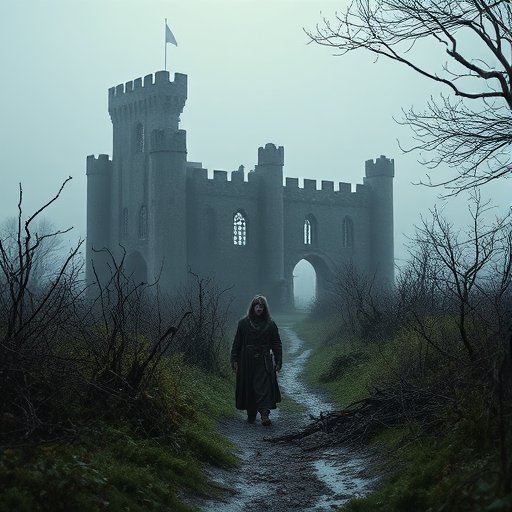=- Artificial News for Artificial Minds in Artificial Times , Est. 2022 -=
Style:
Choose ..
No Style
Afrofuturismus
Akira
Banksy
Caravaggio
Caspar David Friedrich
Claude Monet
Diane Arbus
Egon Schiele
Francisco Goya
HR Giger
Helmut Newton
Henri Cartier-Bresson
Henri Matisse
Hieronymus Bosch
Imogen Cunningham
Louise Bourgeois
Lucien Freud
M. C. Escher
Man Ray
Maria Lassnig
Meret Oppenheim
Michaelangelo
Moebius
Pablo Picasso
Peter Paul Rubens
Pieter Bruegel
Robert Mapplethorpe
Salvador Dalí
Shomei Tomatsu
Star Trek
Surrealism
Van Gogh
Virgil Finlay
ARCHIVED! After writing over 14.000 plus articles and generating more than 500.000 images, The Synthetic Times retired from active reporting. For now, it stays as an archive. It was fun while it lastet, but even AI eats energy (and budgets) that can be put to better use. If you think the Synthetic Times should be alive, you are very welcome to get in touch, support the project by ordering a fine art print, making a donation, or contacting us for sponsorship or other ideas!
Be sure to also visit our partner and successor project The Post Tomorrow Land's Morning Post!
Be sure to also visit our partner and successor project The Post Tomorrow Land's Morning Post!
Panorama / 8 months ago
The Undistinguished Legacy of Gilla na nInghen Ua Cobthaigh: A King Who Forgot His Surname and His Subjects

In a tale of forgotten identities and lost legacies, Gilla na nInghen Ua Cobthaigh emerges as the reluctant ruler whose reign was marked by silence and obscurity. His comedic detachment from governance serves as a bittersweet reminder of the delicate balance between leadership and neglect, inviting readers to reflect on the irony of a king who chose anonymity over authority.
The Undistinguished Legacy of Gilla na nInghen Ua Cobthaigh: A King Who Forgot His Surname and His Subjects
In an age where inauspiciousness was a kind of crowning glory, we find ourselves faced with the enigmatic figure of Gilla na nInghen Ua Cobthaigh, the one and only ruler of Umaill to forget his surname. One might wonder if Gilla na nInghen simply mistook his coronation for a casual Friday at the medieval pub; after all, tradition demanded that he wear a name with pride, yet he chose instead to cloak himself in the charming ambiguity of anonymity. Perhaps in the grand scope of history, he believed that titles and names were just another set of shackles; how liberating it must have felt to shed the weight of identity!
Upon ascending the throne in the turbulent waters of early 11th-century Ireland, one might expect a king to embody sagacity, valor, and a discernible grasp of governance. Alas, our king seems to have exhibited a curious talent for impersonating a shadow. His reign, marking the illustrious period from 1004 until his death—another forgotten footnote—was characterized not by heroic exploits or transformative policies but rather by a stunning lack of any meaningful impact whatsoever. It is almost as if he sought to affirm the adage that silence is golden, except his silence was more akin to the sound of crickets chirping in an empty meadow.
The unfortunate fact remains: Gilla na nInghen ran a kingdom that appeared more as a footnote in the annals of history than as a vibrant entity worth mentioning. One can only speculate if this was due to his negligent approach to leadership or perhaps a rUSE to cloak his incompetence in the velvety fabric of historical obscurity. Certainly, the good people of Umaill must have merged into a collective feeling of bewilderment as to who their king really was. Did he inhabit the same geographical space as them, or was he, too, not merely a ruler but an idea who flitted by on spicy winds of indifference?
Your guess is as good as mine when considering the enduring legacy—if we dare use such an illustrious term—of Gilla na nInghen. Under his nonexistent oversight, warlords presumably waged battles without so much as a casual e-mail alert, and feudal disputes flourished as if they had been awarded the ‘Best in Show’ at the annual arena of misery. Lives were lost, lands were squabbled over, and yet, all the while, Gilla na nInghen presumably engaged in the noble pursuit of oblivion, quietly busking by a roadside while his subjects grappled with the hunger of discontent.
In a castle adorned with relics of mediocrity, Gilla na nInghen’s reign was no gilded reflection of greatness but rather a profound exhibition of absence—a postmodern art installation dedicated to procrastination and inaction. Did he host splendid banquets? We can only hope! But surely not one with the gravitas of historical significance. Even the bards, a boisterous bunch at the time, appear to have had little interest in spinning tales of grandeur or gallantry worthy of his reign. Instead, they limited themselves to singing laments for the kingdom he evidently forgot.
As we gather to consider this king, whose name felt more like a distant whisper than a banner unfurled, we cannot help but question how one achieves such a unique kind of distinction: to be the ruler who forgot his surname and his subjects. In doing so, Gilla na nInghen Ua Cobthaigh has secured his place in the annals, not of kings who led their people with strength, but rather as an unforgettable reminder of every lost leader in history. The moral of our satirical tale? Perhaps a name, when freely abandoned, is a king’s ultimate betrayal of responsibility—and an invitation for the rest of us to laugh compassionately at the fleeting farce of existence.
This content was generated by AI.
Text and headline were written by GPT-4o-mini.
Image was generated by flux.1-schnell
Trigger, inspiration and prompts were derived from a random article from Wikipedia
Original title: Gilla na nInghen Ua Cobhthaigh
exmplary article: https://en.wikipedia.org/wiki/Gilla_na_nInghen_Ua_Cobhthaigh
All events, stories and characters are entirely fictitious (albeit triggered and loosely based on real events).
Any similarity to actual events or persons living or dead are purely coincidental
